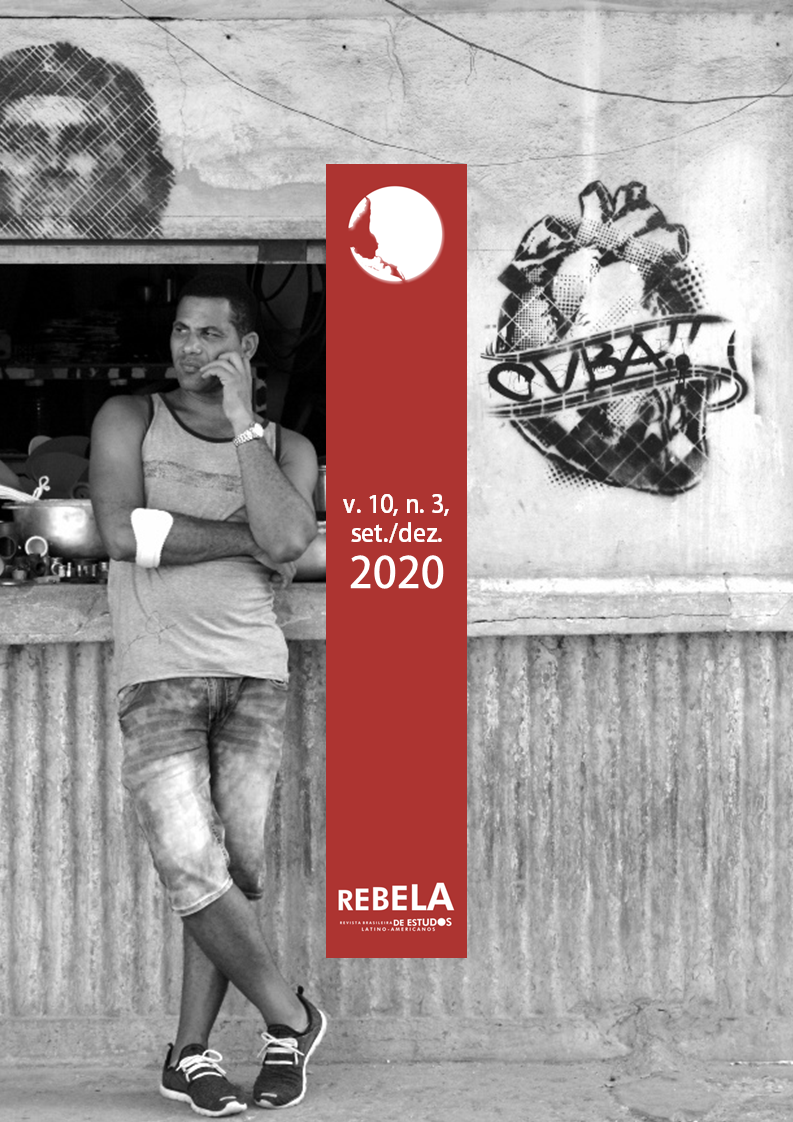Indigenous knowledge and constitutional changes in Bolivia
Resumo
Latin America is one of the regions with the highest indigenous population, however, they still have little political representation and access to basic rights. In this sense, it is sought to analyse the case of Bolivia, the first country to elect an indigenous president and to implement a Plurinational State, changing the structural basis of their society. The resistance of the indigenous population challenges the traditional definition of citizenship and so the neoliberal paradigm. The indigeneity is a fundamental element to understand the process of politicization of the indigenous identities and their interactions with the State. Furthermore, this paper aims to critically review, through a postcolonial reading, how this ethnic and cultural recognition have changed the political chart and how it could be seen as an example of intercultural dialogue, ressignifing the marginal position of those populations. The methodology used is going to be a bibliographical research, with a majority of latin american intellectuals.
Referências
Camargo, Alfredo José Cavalcanti Jordão de (2006). Bolívia - A Criação de um Novo País a Ascensão do Poder Político Autóctone das Civilizações pré-Colombianas a Evo Morales. Brasília: Funag.
Casanova, Pablo González (2009). De la sociología del poder a la sociología de la explotación: pensar América Latina en el siglo XXI. Bogotá: CLACSO, 2009.
Dietz, G. (2018), Interculturality. In: Callan H. (ed.) The International Encyclopedia of Anthropology. Oxford: Wiley, pp. 1-19.
Castro-Gomez, Santiago; Grosfoguel, Ramón (2007). El giro decolonial: reflexiones para una diversidad epistémica más allá del capitalismo global. Bogotá: Universidad Javeriana-Instituto Pensar, Universidad Central-IESCO, Siglo del Hombre, P. 127-167.
Cepal (2015). Os povos indígenas na América Latina: Avanços na última década e dessa os pendentes para a garantia de seus direitos. Santiago: Onu, 2015.
Constituição Boliviana (2009). Constituição do Estado Plurinacional da Bolívia. La Paz: Senado Federal: Centro Gráfico, 2009.
Enloe, Cynthia (2017). Margins, silences and bottom rungs: how to overcome the underestimation of power in the study of international relations. Cambridge, London, p.186-202, abr. 2017.
Fontana, L. B (2012). Narrativas colectivas y procesos políticos en Bolivia. D la era neoliberal a la "revolución cultural" masista. In: MAYORGA, F. (eds.). Estado, ampliación de la Democracia y Disputa Política. Cochabamba: CESU-UMSS, 2012. p.223-257.
Guilherme, M. (2019), Glocal languages beyond postcolonialism: The metaphorical North and the South in the geographical north and south. In M. Guilherme & L. M. T. M. Souza (eds.) Glocal Languages and Critical Intercultural Awareness: The South answers back (pp. 42-64). London and New York: Routledge.
Grosfoguel, Ramón (2008). Para descolonizar os estudos de economia política e os estudos pós- coloniais: Transmodernidade, pensamento de fronteira e colonialidade global. Tabula Rasa, Bogotá, n. 04, p.115-147.
Mignolo, Walter (2000). Local Histories/Global Designs: Coloniality, Subaltern Knowledges, and Border Thinking. New Jersey: Princeton University Press, 2000.
Quijano, Aníbal (2005). A colonialidade do saber: eurocentrismo e ciências sociais. Perspectivas latino-americanas. Buenos Aires: Clacso.
Santos, Boaventura de Sousa (2017). “Para além do Pensamento Abissal: Das linhas globais a uma ecologia de saberes”. CES, Coimbra, p. 01-55.
Wallerstein, Immanuel (1974). The Modern World System. New York: Academic Press.
Downloads
Publicado
Edição
Seção
Licença
Os autores mantêm os direitos autorais e concedem à revista o direito de primeira publicação, com o trabalho simultaneamente licenciado sob a Creative Commons Attribution License, permitindo o compartilhamento do trabalho com reconhecimento da autoria e publicação inicial nesta revista.
Os autores têm autorização para assumir contratos adicionais separadamente, para distribuição não-exclusiva da versão do trabalho publicada nesta revista (ex.: publicar em repositório institucional ou como capítulo de livro), sempre com reconhecimento de autoria e publicação inicial nesta revista.

